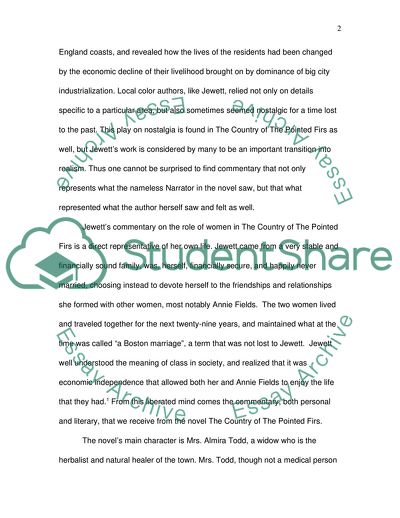Cite this document
(Regionalism in Country of the Pointed Firs by Theodora Sarah Orne Book Report/Review, n.d.)
Regionalism in Country of the Pointed Firs by Theodora Sarah Orne Book Report/Review. https://studentshare.org/literature/1721487-regionalism-in-country-of-the-pointed-firs-close-reading
Regionalism in Country of the Pointed Firs by Theodora Sarah Orne Book Report/Review. https://studentshare.org/literature/1721487-regionalism-in-country-of-the-pointed-firs-close-reading
(Regionalism in Country of the Pointed Firs by Theodora Sarah Orne Book Report/Review)
Regionalism in Country of the Pointed Firs by Theodora Sarah Orne Book Report/Review. https://studentshare.org/literature/1721487-regionalism-in-country-of-the-pointed-firs-close-reading.
Regionalism in Country of the Pointed Firs by Theodora Sarah Orne Book Report/Review. https://studentshare.org/literature/1721487-regionalism-in-country-of-the-pointed-firs-close-reading.
“Regionalism in Country of the Pointed Firs by Theodora Sarah Orne Book Report/Review”. https://studentshare.org/literature/1721487-regionalism-in-country-of-the-pointed-firs-close-reading.


